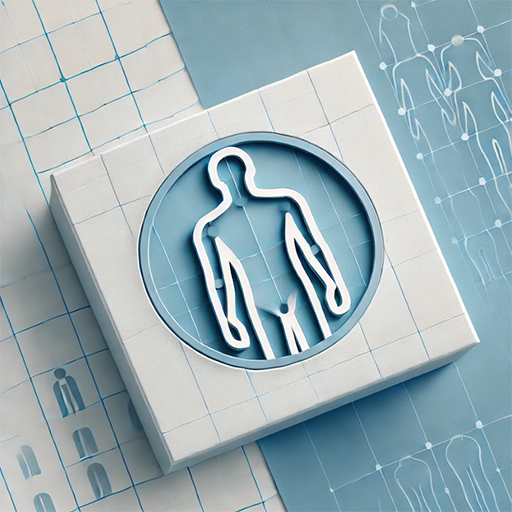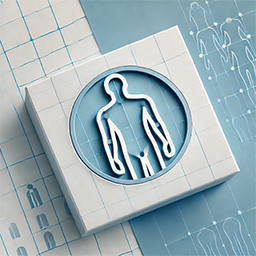Maintaining a healthy weight isn’t just about appearance—it’s also about how you feel each day. Losing weight in a healthy way can make a big difference in your long-term wellness. It helps improve your physical health, boosts your mood, and supports your mental well-being. When you take steps to manage your weight, you’re investing in a healthier future.
In this post, we’ll look at how weight loss can support long-term wellness and share simple ways to begin your journey today.
Why Weight Matters for Long-Term Health
Carrying extra weight puts added stress on your body. Over time, this stress can increase your risk for serious health problems, including:
- Type 2 diabetes
- Heart disease
- High blood pressure
- Joint pain
- Sleep apnea
The Centers for Disease Control and Prevention (CDC) reports that over 40% of adults in the U.S. are living with obesity. This makes it one of the top health challenges in the country. The good news is that losing even a small amount of weight—just 5% to 10% of your body weight—can lead to big health improvements. Small changes can make a powerful impact on your overall well-being.

The Long-Term Benefits of Healthy Weight Loss
Let’s take a closer look at how losing weight can help support long-term wellness:
1. Improved Heart Health
Carrying extra weight forces your heart to work harder than it should. Over time, this added strain can raise your risk of heart disease and stroke. Losing weight can help:
- Lower your blood pressure
- Improve your cholesterol levels
- Ease the strain on your heart
The American Heart Association says that losing even 10 pounds can make a big difference in lowering your risk of heart disease. Small steps toward weight loss can lead to major heart health benefits.
2. Better Blood Sugar Control
Losing weight helps your body use insulin more effectively. This can lower your risk of developing type 2 diabetes or help manage it if you already have it. When you maintain a healthy weight, your body can control blood sugar levels more easily. A study from the Diabetes Prevention Program found that simple lifestyle changes—like eating healthy and staying active—cut the risk of type 2 diabetes by 58%.
3. Less Joint Pain
Carrying extra weight puts added pressure on your knees, hips, and lower back. Over time, this pressure can wear down joints and lead to osteoarthritis. Losing weight can help take stress off your joints, ease pain, and improve how you move each day. Even a small amount of weight loss can lead to better mobility and a higher quality of life.
4. Better Sleep
Sleep problems, such as sleep apnea, are more common in people who carry extra weight. Extra fat around the neck can block airways and make it harder to breathe at night. Losing weight can help open your airways, improve your breathing during sleep, and lead to deeper, more restful rest. Better sleep also supports your overall health and energy levels.
5. Boosted Mood and Mental Health
Physical health and mental health are closely connected. Losing weight has been linked to:
- Lower levels of depression
- Higher self-esteem
- Reduced anxiety
Healthy lifestyle changes—like regular exercise and balanced nutrition—not only help with weight loss but also support brain function and emotional well-being. Taking care of your body can lead to a more positive mindset and better mental health.
How to Lose Weight for Long-Term Success
Not all weight loss methods are healthy. Fad diets and quick fixes may lead to short-term results, but they usually don’t last. Here are safe and proven strategies to help you lose weight and keep it off:
1. Eat Balanced Meals
Focus on eating whole, nutrient-packed foods to fuel your body. A balanced diet should include:
- Fruits and vegetables: Packed with vitamins, minerals, and fiber
- Lean proteins: Choose chicken, turkey, fish, or plant-based options like tofu
- Whole grains: Opt for brown rice, oats, quinoa, and other unrefined grains
- Healthy fats: Incorporate foods like avocado, nuts, and olive oil for heart health
Be sure to limit added sugars, refined carbs, and processed snacks, as they can impact your health and weight loss goals.
2. Stay Active
Regular physical activity is key to burning calories and building muscle. Aim for:
- At least 150 minutes of moderate activity per week: Activities like walking, swimming, or cycling
- Strength training: Include two days per week to build and tone muscles
- Move more throughout the day: Simple actions like taking the stairs, walking the dog, or doing quick stretches can add up
Staying active not only helps with weight loss but also improves your overall health and energy levels.
3. Drink Plenty of Water
Drinking enough water is essential for your body’s metabolism and digestion. It can also help prevent you from confusing thirst with hunger, which often leads to overeating. To stay on track, try drinking a glass of water before meals. This simple habit can help you feel full and avoid unnecessary snacking.
4. Get Enough Sleep
Not getting enough sleep can throw off your hunger hormones, making it harder to control your appetite. Aim for 7–9 hours of sleep per night to help regulate hunger and support your weight loss goals. Quality sleep also plays a key role in overall wellness, improving mood, energy, and health.
5. Manage Stress
Chronic stress can trigger emotional eating and lead to weight gain. Managing stress is key to staying on track with your health goals. Relaxation techniques, such as deep breathing, yoga, or journaling, can help reduce stress and prevent emotional eating. Incorporating these practices into your daily routine can improve your mental health and support weight loss efforts.

Long-Term Wellness Is a Lifestyle, Not a Destination
Weight loss is just one part of the bigger picture. The true goal is to create a healthy lifestyle that supports your long-term well-being. This includes:
- Building healthy habits that you can maintain
- Being kind to yourself when setbacks occur
- Finding enjoyment in physical activity and nutritious foods
Remember, perfection isn’t the goal. Small, consistent progress over time is what leads to lasting results and a healthier life.
Tracking Progress Without Obsession
Focusing solely on the number on the scale can often feel discouraging. Instead, pay attention to other signs of success, such as:
- Increased energy levels
- Improved mood and mental clarity
- Clothes that fit more comfortably
- Better sleep quality
- Lower blood pressure or blood sugar levels
These milestones are just as important as the number on the scale. Celebrate these wins—they show real progress!
When to Seek Support
If you’re struggling to lose weight or keep it off, you’re not alone. A doctor, registered dietitian, or health coach can help create a plan that works for you. In some cases, medications or procedures might be part of the solution.
Trusted sources like the National Institute of Diabetes and Digestive and Kidney Diseases (NIDDK) offer helpful tips and information to get started.
Weight Loss Myths to Avoid
There’s a lot of misinformation out there. Don’t fall for these common myths:
- “Carbs are bad.” Whole grains and fruits are healthy carbs that support wellness.
- “You have to be hungry to lose weight.” Balanced meals keep you full and fueled.
- “Skipping meals helps.” This can slow your metabolism and increase cravings later.
- “Fast results are better.” Slow and steady wins the race when it comes to lasting weight loss.
Healthy Habits That Stick
Here are simple habits you can start today:
- Cook at home more often
- Pack healthy snacks
- Keep a food journal
- Plan your workouts
- Drink water first thing in the morning
- Take short walks after meals
These small steps can lead to big changes over time.
The Power of Mindset
Having the right mindset is key to success. Instead of saying “I’m on a diet,” try thinking:
- “I’m learning to take care of my body.”
- “I deserve to feel good and be healthy.”
- “Each day is a new chance to make progress.”
Being positive and patient helps you stay focused for the long haul.

Your Journey Starts Now
Losing weight isn’t always easy—but it’s worth it. When you take small, steady steps toward a healthier lifestyle, you’re setting yourself up for a better future. Remember, weight loss supports long-term wellness in many ways: stronger heart, better sleep, less pain, and more energy to enjoy life.
Take Action Today!
Ready to get started? Here’s your action plan:
✅ Write down one health goal for this week
✅ Swap one processed snack for a piece of fruit
✅ Take a 10-minute walk after lunch or dinner
✅ Drink an extra glass of water each day
✅ Celebrate one small win by the end of the week
You don’t have to change everything at once. Just begin. Every small step adds up!
Conclusion: What’s Your Next Step?
Long-term wellness starts with choices you make today. Whether it’s walking more, eating better, or getting more sleep, every healthy step supports your weight loss journey. And as your weight goes down, your wellness goes up!
What’s one change you’re ready to make for your health this week?
Share it in the comments below—we’d love to cheer you on!



